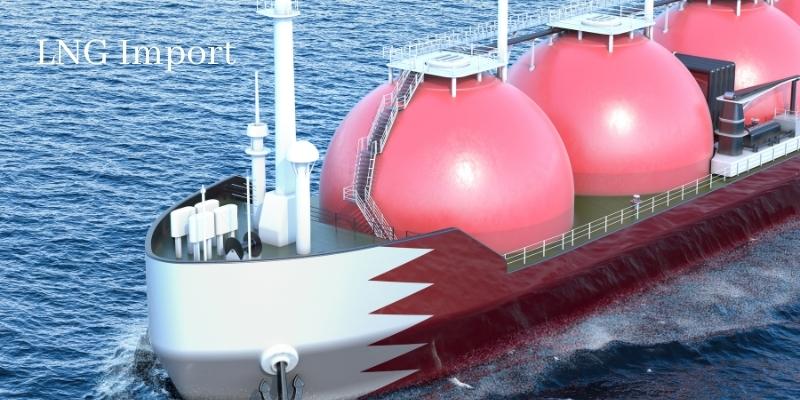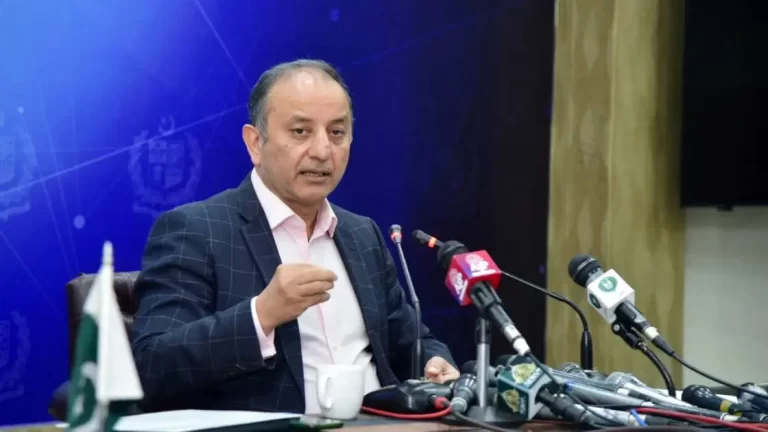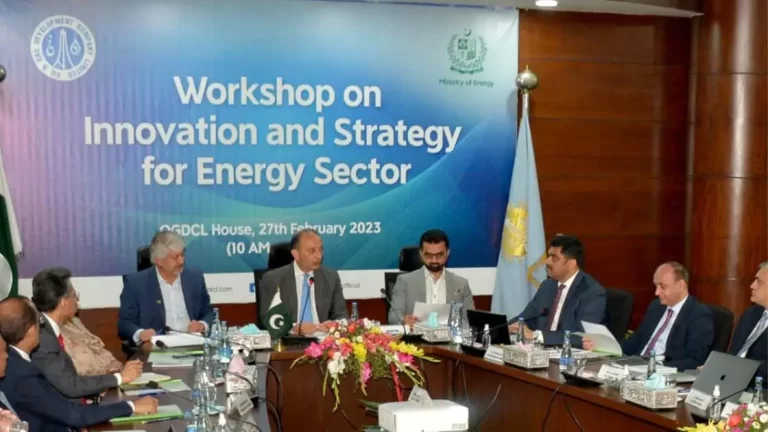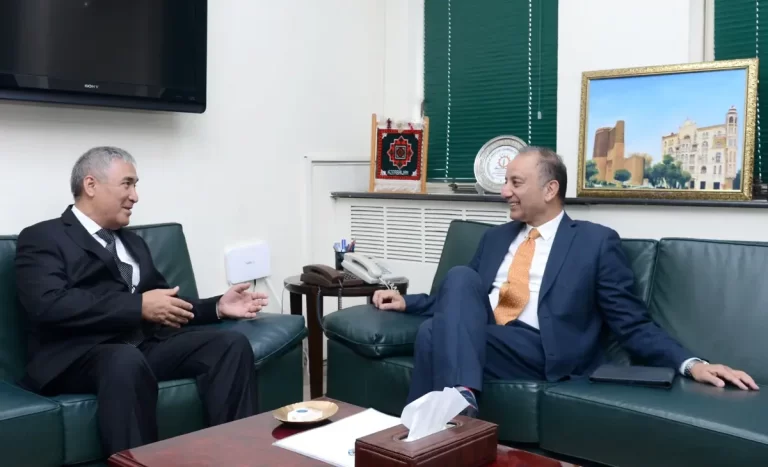LNG Supplies: Pakistan to face another tough Winter season
It is going to be tough for Pakistan to import LNG in the upcoming winter season due to the curb on Australian gas exports, which would tighten LNG supplies in the international market.
Pakistan has been dependent on LNG exports due to the rising demand for gas in the domestic market.
The country has been facing 6.5 per cent gas depletion in indigenous gas production every year and meeting 24 per cent demand from LNG supplies from the international market.
However, due to rising prices in the international market in wake of the Russia Ukraine war, Pakistan has been unable to arrange LNG supplies since last winter.
Last time, it had received an offer of 39 dollars per MMBtu from a bidder and therefore had rejected a bid.
In a recent move, Australia imposed curbs on Australian gas exports that would further tighten LNG supplies in Asia Market.
This will also result in hitting LNG deals on spot purchases for Pakistan, aggravating the situation of gas supplies in the upcoming winter season.
Due to competition from European buyers seeking to replace restricted Russian gas, Asia-Pacific has endured months of constrained LNG supplies and soaring prices.
Curb on Australian Gas Exports leading to short LNG supplies
The Australian Competition and Consumer Commission has urged the federal government to safeguard domestic gas supplies and limit exports after predicting that the country’s east coast could experience a shortage in the coming year.
This could make it difficult for new LNG importers, like the Philippines, to acquire their first shipments this year.
According to an industry group, Australia has more than enough natural gas to meet domestic demand.
Australia, a major natural gas exporter, has signalled that it may reduce liquified natural gas exports as the Asia-Pacific region struggles with tight LNG supplies, high prices, and competition from European gas-starved buyers.
Australia seeks to reduce its overseas sales in favour of domestic consumption in anticipation of a projected shortage of local supplies in 2020.
As global energy protectionism gains traction, the Australian Competition and Consumer Commission urged Canberra last week to protect domestic gas supplies and limit LNG — cooled natural gas — exports after estimating that the east coast of the country could face a shortfall of 56 petajoules of gas in 2019.
For months, the Asia-Pacific region has faced competition for fuel from European purchasers seeking to substitute restricted Russian gas.
In their haste to get LNG supplies to mitigate a pipeline gas shortage ahead of the upcoming northern winter, these European nations have outbid less developed Asian nations.
Last week, ACCC Chair Gina Cass-Gottlieb stated, “To protect energy security on the east coast, we recommend the Resources Minister initiate the first phase of the Australian Domestic Gas Security Mechanism (ADGSM).”
On December 17, 2021, a liquefied natural gas tanker docks in Japan. Japan’s industry minister stated on Friday that if Japan were to exit the Sakhalin energy projects in Russia and their stakes were acquired by Russia or a third country, Western sanctions would be weakened and Russia would benefit.
On December 17, 2021, a liquefied natural gas tanker docks in Japan. Japan’s industry minister stated on Friday that if Japan were to exit the Sakhalin energy projects in Russia and their stakes were acquired by Russia or a third country, Western sanctions would be weakened and Russia would benefit.
The majority of the gas used on the east coast of Australia is produced by companies that also provide LNG supplies to Asia-Pacific and other regions. The ADGSM prevents these producers from exporting LNG if there is a domestic shortage.
Australian LNG producers
Australian LNG producers also sell ad hoc and non-contracted LNG on the spot market, despite the fact that the majority of LNG sales to foreign buyers are through long-term contracts. Those nations unable to negotiate favourable long-term contracts are compelled to purchase them on the spot market.
Ogra reduces LNG prices by 20.5%
The ACCC recommends that producers refrain from selling this LNG supply to the international market, which is currently flush with gas-starved buyers, and instead reserve it for domestic consumers.
Despite the ACCC’s warning, the Australian Petroleum Production & Exploration Association has reassured markets that there will be more than enough gas next year and that there has never been a shortage in the past.
“Throughout the history of the export industry, the domestic gas market has consistently been flooded with excess supply. Thus, we have accomplished both objectives. Damian Dwyer, the company’s acting chief executive, stated on CNBC’s “Squawk Box Asia.
“There have been substantial investments in the export industry. And this investment has led to a significant increase in domestic supply. Both complement one another.”
According to a consultancy, it will be difficult for EU nations to reduce their gas consumption by 15% as proposed.
Analyst Predict Prices Pressures
Analysts predict that new supply and price pressures will be felt by the region’s largest LNG buyers, such as Japan and South Korea, as well as newcomers to LNG imports.
The Platts JKM pricing index indicates that the price of LNG has increased by nearly 80 percent since late February before the Ukraine conflict began.
Kenneth Foo, regional manager for APAC LNG pricing at S&P Global Market Intelligence, stated, “Since April, there have been no [spot] tender sales from the three major LNG export facilities on Australia’s east coast, indicating a slowdown in exports.”
“The lack of spot availability from the East Coast of Australia could tighten LNG supply in the Asia-Pacific region,” Foo said, citing the fourth quarter’s peak winter demand season.
Bangladesh and Pakistan unable to buy LNG on Spot Market
Sam Reynolds, an analyst at the Institute of Energy Economics and Financial Analysis, stated that developing Asian nations such as Bangladesh and Pakistan have been unable to buy LNG on the spot market.
“The inability to procure LNG volumes in these nations has led to fuel shortages and blackouts, bringing these nations to the verge of economic collapse,” he explained.
He adds that the Philippines, a newcomer to the LNG import market, will face challenging conditions when attempting to import its first LNG shipment.
“The inability to purchase LNG at competitive prices could render new terminals and LNG-fired power plants inoperable and stranded,” he said.
Such setbacks could derail the Philippines’ efforts to expand its LNG industry, which has already endured years of setbacks, according to Reynolds.
Even though countries without long-term contracts, such as the Philippines, may be negatively affected, the region’s LNG supply is generally secure.
The proposed Australian reductions equate to approximately 14 LNG cargoes. This is a drop in the ocean compared to the monthly quantity of contracted cargoes shipped. According to Reynolds, in July Australia exported 100 cargoes out of more than 300 cargoes shipped to Asia.
Minimum Impact on Importers having a LNG Supplies contract
“Exports of LNG that are not covered by long-term contracts would only be restricted. This means that reductions would have minimal effects on buyers such as Japan, Korea, and China, which purchase 70 to 80 percent of their LNG through long-distance transport “term agreements,” Reynolds stated.
Australian restraints are a lesser concern than the LNG markets. Europe’s competition for Asia-LNG Pacific’s supply remains the greatest threat, according to Reynolds.
As a result, the global increase in energy prices has contributed to the soaring inflation that many central banks are attempting to tame.








